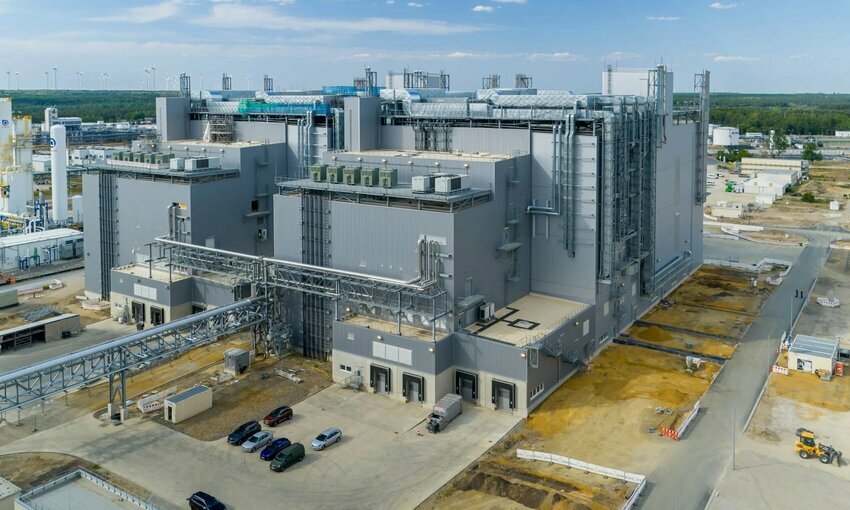 (Credit: BASF)
(Credit: BASF)In order to significantly decrease the carbon footprint of Nanotech lithium-ion batteries, BASF and Nanotech Energy have partnered to include recycled materials in the company's North American supply chain.
The agreement will help close the loop for lithium-ion batteries, commonly used in electric vehicles, by using BASF-produced cathode active materials from recycled materials. The circular battery production process will be supplemented by both companies’ partnership with American Battery Technology Company and TODA Advanced Materials, both of which will supply additional recycled materials and help recycle scrap from the Nanotech operation.
Using recycled materials in battery production reduces carbon emissions of batteries by about 25% compared to using newly-mined materials.
“By working together, our four companies can pool their expertise and drive better and more sustainable outcomes for the entire North American electric vehicle and consumer electronics industries,” said Curtis Collar, chief marketing and sales officer at Nanotech Energy. “This is a major milestone among the ongoing advances and growth of the lithium-ion battery market, and we are proud playing such a key role in the reduction of CO2 emissions along the battery value chain.”
BASF has successfully implemented closed-loop battery recycling systems in Asia for years, and the company just announced battery recycling in Europe as well. Its partnership with Nanotech will further expand its services in North America.
While increasing prevalence of EVs is a necessary step in decarbonizing the U.S. economy, the production of lithium-ion batteries has been criticized for outweighing the environmental benefits of electrification. Mining is required for many of the materials needed for the batteries, contributing to further environmental degradation.
Plus, once a battery reaches the end of its life, it may contribute to pollution and release harmful chemicals if disposed of incorrectly. EV batteries also currently have a high price tag due to the limited nature of materials needed to create them.
Battery recycling addresses all of these concerns. In order for EVs to become more widespread, the process through which their batteries are created must involve recycling at some capacity. Recycling lithium-ion batteries specifically helps avoid having to mine for more materials, keeps EV batteries from polluting the Earth, and will eventually contribute to a less expensive EV market overall.
The U.S. Department of Energy has also established the Lithium-Ion Battery Recycling Prize, which aims to further profitable solutions for collecting, sorting, storing, and transporting discarded lithium-ion batteries for materials recovery. Continued efforts to promote and implement battery recycling can contribute to a more environmentally-beneficial EV market, beyond just avoiding fossil-based fuels in the vehicles themselves.